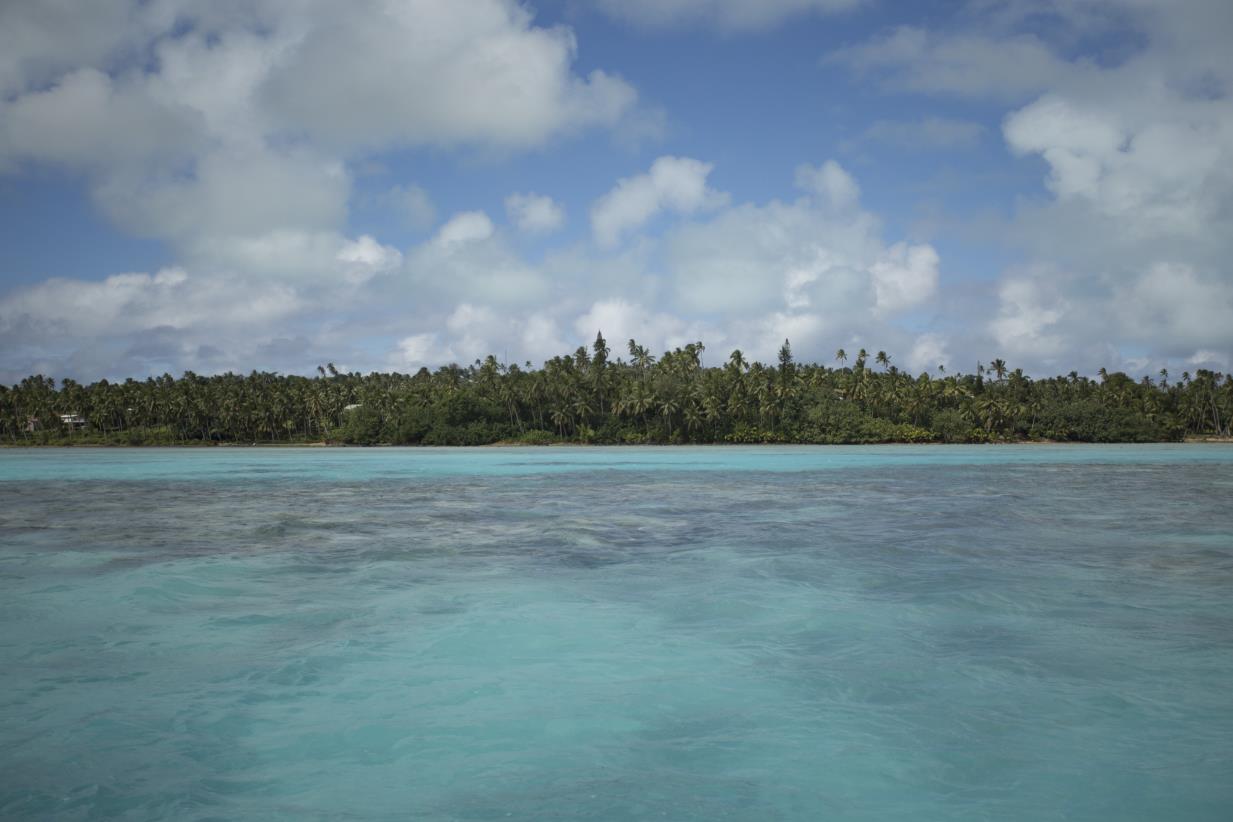Urgent climate action key to food security in small island states
Political commitment, partnership needed to protect SIDS against rising sea levels and climate changes

Although small island states contribute the least to climate change, they bear the brunt of its effects.
©Photo: ©FAO/ Sue Price
15 October 2015, Rome -- Urgent action is needed to secure the future and food security of Small Island Developing States (SIDS) against the disproportionate effects of climate change, FAO Director-General José Graziano da Silva said at Expo Milan today.
Speaking at a ministerial meeting on food security and climate adaptation in Small Island Developing States, the FAO Director-General underlined the particular threat that rising sea levels pose to many small islands, making adaptation strategies not only a priority for these states but “a question of survival.”
“The Small Island Developing States are among the most affected by climate change -- at the same time, they are among the least responsible for it,” he stressed.
These disproportionate effects undermine local livelihoods that depend heavily on climate-sensitive sectors such as fisheries, tourism, and agriculture, he added.
Referring to the new Sustainable Development Goals and the upcoming Paris Climate Conference, the FAO Director-General called 2015 a crucial year for global responses to sustainable development and climate change – and he underlined that the food security of Small Island Developing States lies at the heart of both agendas.
“Without urgent action on climate change, we risk losing much of the gains we have achieved in the struggle against hunger and extreme poverty in recent years,” he said.
Graziano da Silva stressed the importance of political commitment and partnerships to helping small islands mitigate climate changes while supporting growth, food security and stable livelihoods.Italian donation
The FAO Director-General especially thanked the Government of Italy for its recent $2 million contribution to the new FAO Trust Fund for SIDS.
He also highlighted the importance of the SAMOA Pathway, an action plan adopted by governments last year in support of small island states on issues such as equitable economic growth, climate change, sustainable energy, disaster risk reduction, and the sustainable use of marine resources.
Through the Global Blue Growth Initiative, “FAO is assisting the Small Island Developing States to sustainably use their aquatic resources,” he said. “In the Caribbean, FAO is supporting the development and implementation of resilience-building and disaster risk reduction plans. In the Pacific region, we are part of the food security and sustainable livelihoods program.”
Contact
Beatriz Beeckmans FAO Media Relations (Rome) (+39) 06 570 55468 [email protected]
